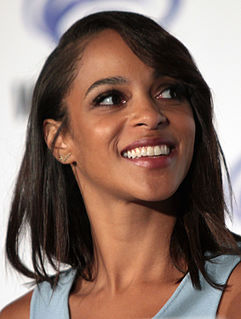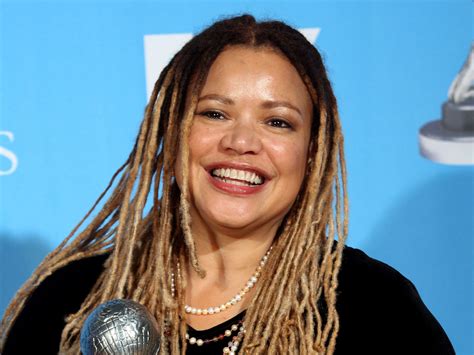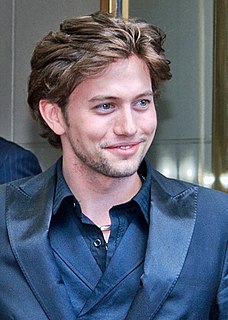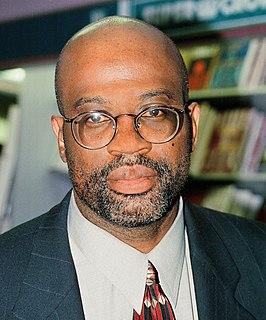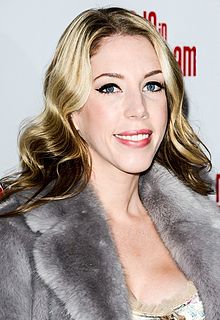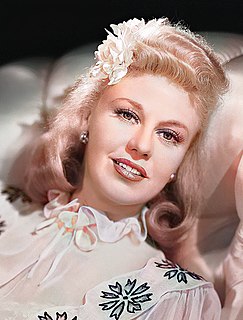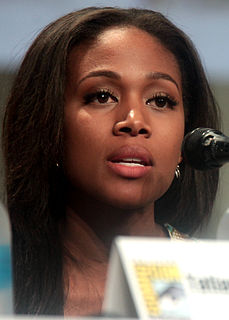A Quote by Megalyn Echikunwoke
I don't think it's a bad thing to play a character that's not necessarily a super-woman. Even if the character is a little bit stereotypical, as long as the whole story is good and positive, or makes some sort of important statement, I think it's okay. But, on the whole, you can't just do that, especially as a black woman. It's more of a responsibility. You've gotta let the world see black women being successful, strong, smart, with power and who are self-possessed.
Quote Topics
Bad
Bad Thing
Being
Being Successful
Bit
Black
Black Women
Character
Even
Good
Gotta
Important
Just
Little
Little Bit
Long
Makes
More
Necessarily
Okay
Play
Positive
Possessed
Power
Responsibility
See
Self
Smart
Some
Sort
Statement
Stereotypical
Story
Strong
Successful
Super
Thing
Think
Whole
Woman
Women
World
Related Quotes
There are more than 100 million African women who go topless at some point in the day, each and every day, to honor both God and our ancestors. So being in a country like America where nothing is hated more than the image of the black woman, even by black people'because her womb produces the black man and makes us black'I find it of grave importance to implement African images, and especially to produce media images that acknowledge the sexual power and fertility of black women.
I wanted to pay homage to someone who was such an important literary figure in my life. I think Langston Hughes would be proud of the picture Black Nativity, yet it's a contemporary story about a family living in Harlem. I named the lead character Langston, put a little bit of poetry in there, and some Langston Hughes quotes, and, of course, his stage play, Black Nativity.
While I might not have a specific experience that is fully American, there is still a knowledge, something that I logically understand as a black woman and a black woman who is existing in America and a black woman who is in the diaspora that are just known quantities that I think anyone can relate to who is black.
I just really like the characte [Jasper Hale], and I love the story [Twiglight], I think it's a very strong character and I respect him. It's interesting; I respect the character that I play. I don't understand it, but I do. That's a good thing. I think so, I think so. I never felt like that before with a character.
When I'm looking for a strong female character, or a strong character at all, I'm looking for a character that has a purpose in that story, that has an interior life of some sort. They don't have to be physically strong; they don't have to be morally strong or ethically strong, because men and women come in a huge variety of all of those things. Emotionally, ethically - I'm less concerned with that. I just don't want them to be props. That's the only thing that offends me.
It's very necessary, showing the positive aspect of a black father. We see a lot of black women being the head of the household and holding the house down, but I think we need to have those images because there are black fathers out there who are doing the same thing and who are the glue to the family. That's who Black Lightning is.
If you think of even Tolstoy or a book like 'Anna Karenina,' you go from character to character, and each section is from the third person perspective of a different character, so you get to see the whole world a little more kaleidoscopically that way. That's traditional narrative manner, and I haven't done a book like that before, but I enjoyed it.
